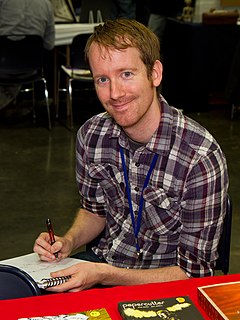A Quote by Ella Baker
The anniversary of the Montgomery boycott was being celebrated, and the handbill that was out, and all whatever literature that was circulated, didn't say practically anything about movement or what the movement stood for, what it had done, or anything, but was simply adulation of the leader, you know, [Martin Luther] King.
Related Quotes
What is accurately portrayed is the rich humanity not just of Martin Luther King but of the movement, which was a multiracial movement. You had blacks and whites coming together and sacrificing, organizing and mobilizing the world. That's the first time we've had collective action put at the center of any kind of portrayal of Martin King on the screen.
One of our priorities when doing "March" is to sort of undo what we feel is the disservice done by what we call the Nine Words Problem. Which is that most American kids, whatever they do learn about the movement, especially in school, is usually limited to Rosa Parks, Martin Luther King, "I Have a Dream." And so there's sort of a layer of unreality; there's not a sense of continuity.
In less than a century we experienced great movement. The youth movement! The labor movement! The civil rights movement! The peace movement! The solidarity movement! The women's movement! The disability movement! The disarmament movement! The gay rights movement! The environmental movement! Movement! Transformation! Is there any reason to believe we are done?
I remember back in the 1960s - late '50s, really - reading a comic book called 'Martin Luther King Jr. and the Montgomery Story.' Fourteen pages. It sold for 10 cents. And this little book inspired me to attend non-violence workshops, to study about Gandhi, about Thoreau, to study Martin Luther King, Jr., to study civil disobedience.
That was exciting to be able to comment on civil rights. I mean, the civil rights movement that young people don't know about today, but Martin Luther King was considered by the establishment press in the early years of the sit-in movement as a dangerous man, and he was the equivalent at that time as Malcolm X. And he was told to stop his demonstrations; they were against the law and all of that. Now that he's sainted and sanctified we've forgotten.
In your short stay in Atlanta, I'm sure you saw that there was great competition between Martin's [Luther King] father and John Wesley Dobbs in terms of family status. You know, the bragging about whose child got a master's degree first and whose child, maybe, was the first Ph.D. Out of a background like that, the business of becoming a chairman of an important movement or a movement that symbolizes a certain amount of prestige is something you don't resist easily.





































